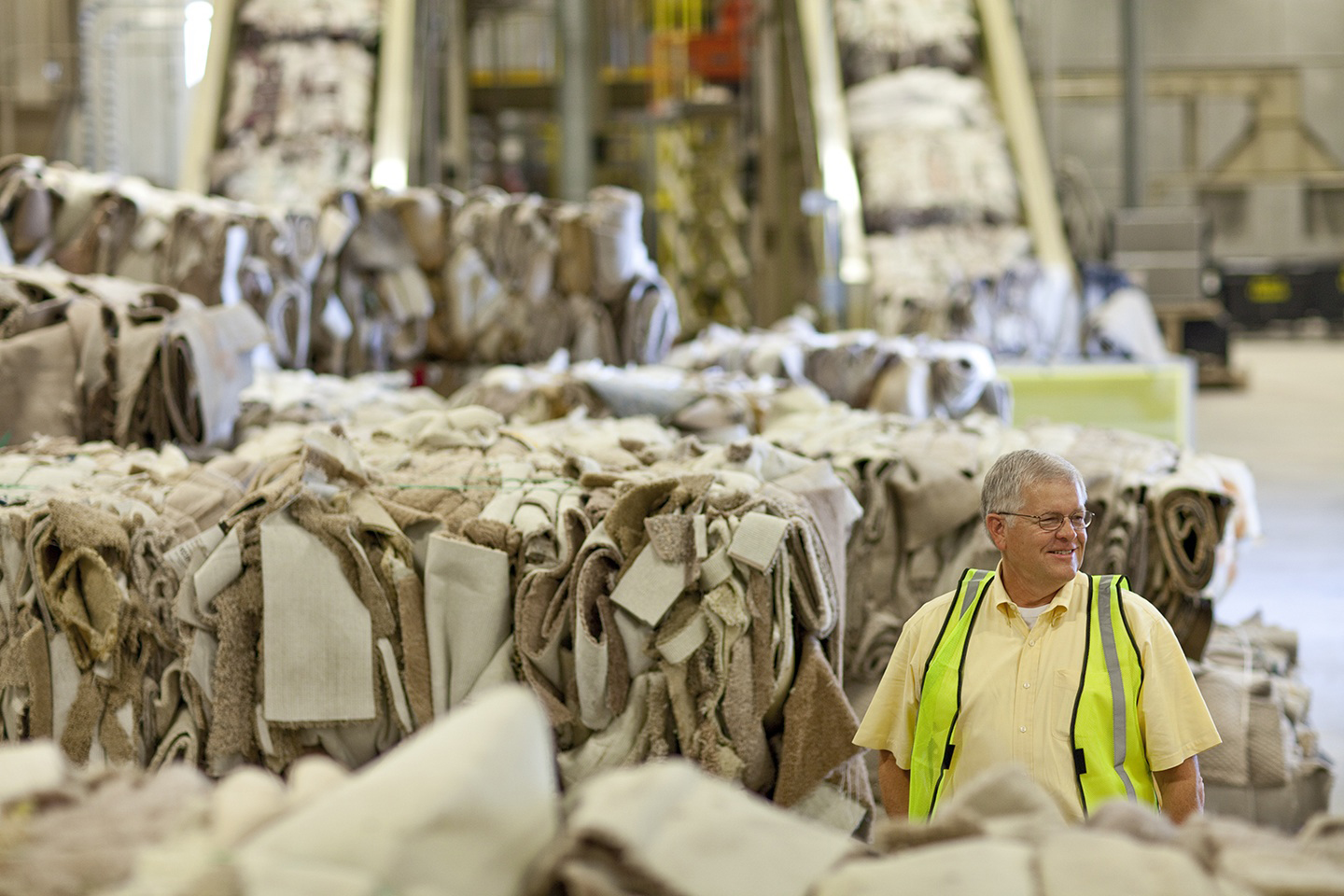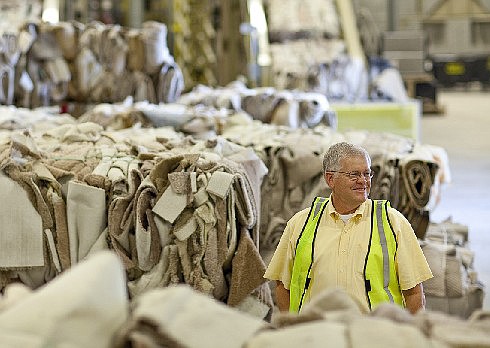The world's largest carpet manufacturer is targeting Ringgold, Ga., as the new home for a $17 million carpet recycling facility and 70 new full-time jobs on the site of what was once a 650,000-square-foot rug distribution center.
Carpet recycling has grown in importance for Shaw as the manufacturer tries to stay ahead of environmental regulators, who have raised questions -- and in California have raised fees -- on roughly 4 billion pounds of discarded carpet that ends up in landfills each year.
Shaw's efforts are starting to make a dent. The company has recycled more than 700 million pounds of carpet since it began ramping up its recycling program in 2006. Much of the program, which it calls Cradle to Cradle, is a voluntary effort aimed at keeping carpet out of landfills.
Shaw already operates its original Evergreen plant in Augusta, Ga., where it recycles Nylon 6 carpet, as well as two plants in Dalton that convert non-recyclable carpet into steam power.
The new Ringgold plant will be the first that recycles polyester in addition to nylon, the realization of a long-term goal for the manufacturer's research and development team.
Aside from the environmental impact, there's a tangible business benefit too. Most carpet materials, such as nylon and polyester, are made from petroleum, and wild swings in the price and supply of oil can affect profitability. By creating its own supply of nylon and polyester, Shaw can better control costs and profits. The company already certifies 64 percent of its products as Cradle to Cradle, and it wants to raise that to 100 percent by 2020.
"Evergreen Ringgold expands our efforts to keep end-of-use carpet out of landfills," said Paul Murray, vice president of sustainability and environmental affairs at Shaw. "By expanding our recycling portfolio, we are illustrating our continued commitment to converting something that historically may have been seen as waste into a resource that has a longer life in the economy."
 Dalton, Ga.-based Shaw Industries will build a $17 million carpet recycling center in a former Ringgold, Ga., distribution facility, with plans to go operational in 2015. The flooring manufacturer says it has recycled more than 700 million pounds of carpet since it began its voluntary program in 2006.
Dalton, Ga.-based Shaw Industries will build a $17 million carpet recycling center in a former Ringgold, Ga., distribution facility, with plans to go operational in 2015. The flooring manufacturer says it has recycled more than 700 million pounds of carpet since it began its voluntary program in 2006.Shaw Industries announced in January that it would exit the rug business, a move that affected multiple facilities in Catoosa County. The flooring manufacturer is transforming one such facility, plant 44, into a luxury vinyl tile facility, while the former plant 37 distribution center will become Evergreen Ringgold, a hub for carpet recycling in 2015, officials said.
"The development of Evergreen Ringgold is the latest example of Shaw's sustainable business strategy at work," said Vance Bell, Shaw's chairman and CEO. "This addition to our recycling portfolio reflects our continued efforts to drive innovation into the business and to protect and make efficient use of resources while focusing on long-term financial success."
The Dalton, Ga.-based flooring giant won't pay any taxes for three years on some $45 million in equipment it plans to install at its new Ringgold luxury vinyl tile plant. The manufacturer also won't pay any taxes on the $17 million it plans to spend on its recycling operations, a benefit that will decrease by 10 percent every year, said Randall Peters, chairman of the Catoosa County Development Authority.
Though the 70 new recycling jobs and 200 new luxury vinyl tile jobs won't make up for all of the loss of 600 jobs in Shaw's rug manufacturing operations, Peters said the development authority hopes that Shaw will continue to see Ringgold as a future hub for expansion.
"We want to keep a good partnership with Shaw, and we're glad to have those jobs back," he said.
The new jobs in Ringgold will bolster Shaw's existing 15,000-employee workforce in Georgia, where most of the world's carpet is created. But to bring discarded carpet back home, the company has created more than 50 collection points around the U.S., which lie within range of about 75 percent of the country's population.
Contact Ellis Smith at esmith@timesfreepress.com or at 757-6315.
